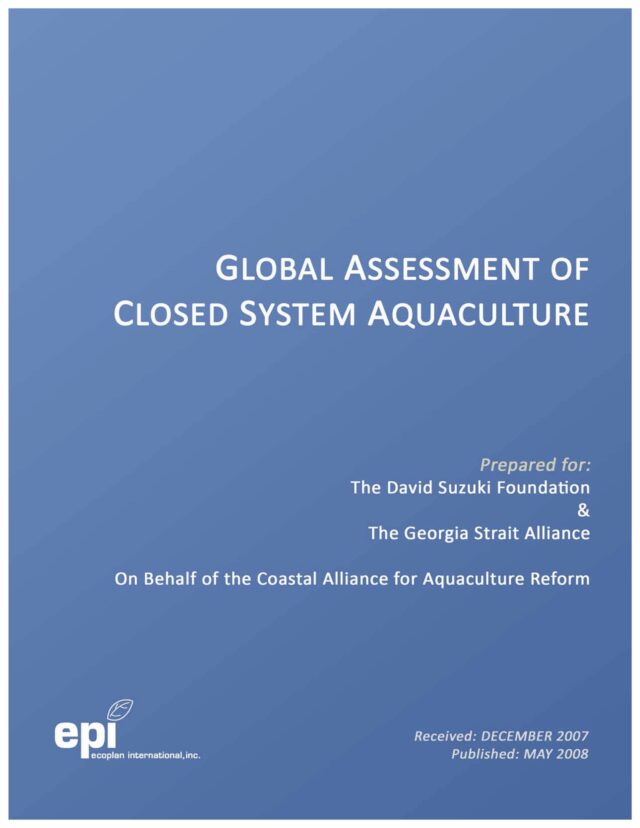Global Assessment of Closed System Aquaculture
Published by:
David Suzuki Foundation and partners
Partners:
Georgia Straight Alliance,
Coastal Alliance for Aquaculture Reform
Oceans and fresh water fisheries and aquaculture, human health and wellbeing, industry, salmon, economics, water systems, commercial products, protecting coastal waters, conservation, shellfish
People throughout the world love to eat seafood. And no wonder. Fish and other seafood are tasty and nutritious. They are a healthy source of protein, vitamins and essential omega-3 fatty acids. As the global demand for seafood increases and ecological constraints put limits on wild fish supplies, aquaculture is becoming an important means of satisfying that demand.
But not all aquaculture is equally beneficial. In particular, open net-cage farms producing fish such as salmon have serious negative impacts. At their worst, they cause devastating damage to the marine environment, threatening wild salmon runs, shellfish beds, marine mammals and many other species in the area. Even so, salmon farming has become an important part of many coastal economies. Our goal is to achieve both financially viable aquaculture and healthy local ecosystems.
Closed system aquaculture is already providing better ways to farm fish. This involves barrier technologies that ensure no contact between wild and farmed fish, thus eliminating the most negative impacts of fish farming and significantly reducing others. Around the world, CSA is producing fish and profits without degrading the rich abundance of oceans, lakes and streams.
